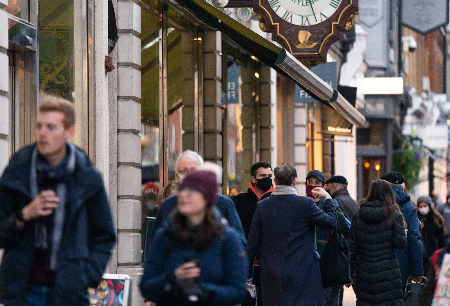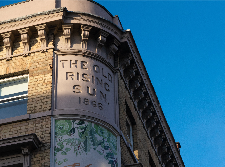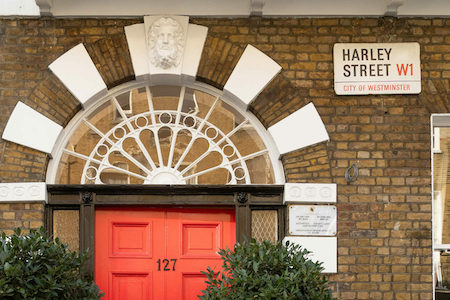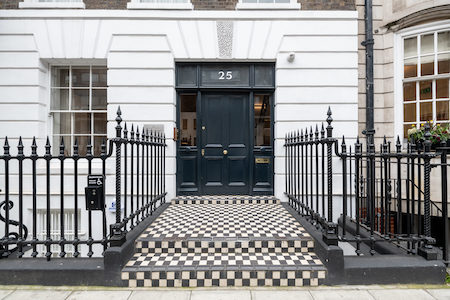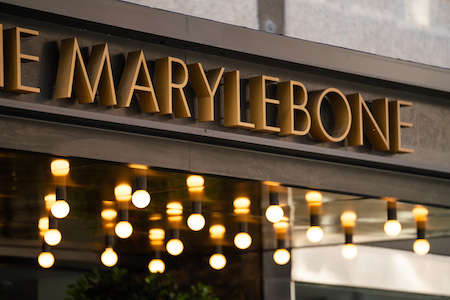This week, we’re meeting Mr Ian McDermott, Consultant Knee Surgeon with London Sports Orthopaedics.
Can you tell us a little bit about your work as a knee surgeon?
I’ve been ‘into knees’ ever since my first attachment to orthopaedics as a junior doctor, and all these years later I’m still as into knees as ever! The knee is one of the most complex but most frequently injured joints in the body, and hence we’re always kept very busy. About half my work is focussed on fixing damage caused by sports injuries, seeing people with meniscal tears and ligament ruptures. The other half of my time is spent dealing with degenerative knees, ranging from keeping younger patients’ knees going for longer, with complex reconstructions, to knee replacement surgery for older patients, with more end-stage arthritis.
Describe your average day.
Importantly, some people see surgeons as people who just operate and who only live in the operating theatre. This isn’t so: about 1/4 to 1/3 of my week is spent operating, but the rest of my week is spent seeing people in clinic. These two individual halves to my job are each critically important. The path to good outcomes starts with obtaining the correct diagnosis, before then discussing the pros and cons of the various potential available treatment options with the patient, and it is my role to inform patients and to assist them in making the right decision for them and their knee, before even contemplating picking up the scalpel!
How did you get to where you are today?
Through relentless hard work! A bit of ability, a bit of good luck… but a LOT of hard work, focus and determination. To be a good surgeon requires a long period of training, a lot of study, passing tough exams and then continuing on a life-long journey of learning and gaining experience. It also requires patience, critical thinking, and an ongoing interest in academia and research, as well as patience, insight and compassion for your patients. 17 years of training, from medical student to consultant… 17 years of experience, since becoming a consultant… and I’m still learning and still constantly trying to improve what I do. Being a surgeon is a great responsibility. Thankfully, most (but sadly not all!) surgeons are deeply diligent and have integrity and honesty, and we focus obsessively on trying to do the right thing and the very best for each individual patient that we see. It’s tough – but it’s also an honour, and I genuinely think that I’ve got one of the very best jobs in the world!
How has Covid-19 impacted your organisation?
The Covid crisis has hit everyone really hard. At times, Central London has felt like a ghost town. Like many, we had to make use of the government’s furlough scheme early on in the first lockdown period for some of our staff, which helped enormously. Thankfully, though, as a small company our practice is dynamic and able to adapt quickly, and we’ve focussed on just keeping things going. We’re very aware that in healthcare, we’re the lucky ones! There are people out there who have lost their jobs, their livelihoods, their entire careers. With healthcare, however, it’s like damming up a river… you can pause in the delivery of healthcare, but all that does is to stack up an increasing burden of growing demand that will eventually come flooding through, in time. It has been estimated that at present, there are about 4.5 million people on surgical waiting lists within the NHS. So, if anything, this current period for us should perhaps be considered as the calm before the storm, because demand for orthopaedic procedures such as knee replacements and hip replacements is going to sky-rocket once people are actually allowed to start living their lives normally again.
What do you like most about being based on Harley Street?
I do clinics at No. 25 Harley Street, which is part of the Phoenix Hospitals Group and linked to The Weymouth Street Hospital. It’s a pleasure working there: if often feels like we’re in a 5-star hotel rather than a hospital. The best thing about the whole Harley Street area is that the concentration of medical services in the area drives an atmosphere of quality, as understandably paying patients expect the best.
Can you share with us the type of clients that you see in particular? Famous sports people perhaps?
One of best things about my job is that I see such a wide variety of people: Lords, Ladies, MPs… CEOs and leaders of industry… ‘normal’ people with normal jobs… recreational amateurs to professional athletes. The full spectrum. I’m ‘lucky’ that perhaps a majority of my patients are well-educated affluent individuals with good communication skills, which does make a lot of my job that much easier… but at the same time, it also brings higher expectations! But that’s fine!
What are your thoughts on the future of the Harley Street Area?
Every time I walk up or down Harley Street and around the surrounding area I’m struck by the number of renovations and building projects going on. Despite the difficulties of recent times, it still feels as if there’s a lot of ongoing investment into the area. Quality encourages further quality, and so hopefully the Harley Street area will continue to build upon its existing reputation as a focal point for high-quality healthcare.
How does the Harley Street Medical Area Partnership support your business?
The Harley Street Medical Area Partnership is working to promote the many positives that the area has, and to raise awareness. Sometimes it’s hard to get outside of one’s bubble, especially now, with all of the many various restrictions that are in place. HSMAP acts as a focal point helping people become more aware of what services are actually in the area and what makes them special, which is definitely something worth promoting.
If you could describe the Harley Street area in three words, what would they be?Focal-point (that’s one word!) / Medical / Excellence.
Mr Ian McDermott
Consultant Knee Surgeon
www.kneesurgeon.london
